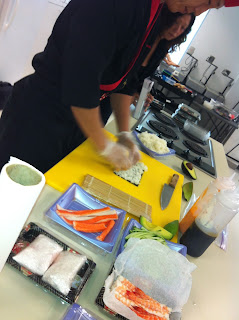Our very own Claire Gunnels spoke to a packed house about practical ways to zap our pessimism gene and increase happiness. Skeptical? For many of us, our concept of happiness is backwards--we don't achieve happiness by working hard and being successful, rather, if we are happy, we will work hard and increase our chances of success. Studies show us that happy people are better able to learn, create and see opportunities than those who perceive things negatively. Claire was inspired by The Happiness Advantage, a book by Harvard psychologist Shawn Achor, who has spent his career studying the habits of happy individuals. As his research shows us, even if genetics predisposes you to pessimism, you can take steps to reprogram your brain to think more positively. Here are the proven techniques that Claire shared with us:
- 3 Gratitudes- Write down or tell someone about three specific things that occurred in the past 24 hours for which you are grateful.
- Journaling about Positive Experiences- Take two minutes to write down the details of a positive experience you had in the last 24 hours.
- Fitness Fun 15- Even just 15 minutes of exercise daily can release endorphins and improve your mood.
- Meditation- In the middle of a hectic day or stressful situation, take a few moments to focus on your breathing and slow it down. Asking your brain to focus only on a single, simple task helps it to regain focus and work more efficiently.
- Conscious Acts of Kindness- Every day for 21 days, take a moment to email a friend or acquaintance to praise or thank them.
If you begin to do one of the above techniques daily for 21 days you can create a habit and rewire your brain to look for the positive. A lot of these things may seem like common sense, but how many of us consciously put these techniques into practice? Thanks to Claire for the great insight into the science of positive thinking!
Check out Shawn Achor's TED talk:


